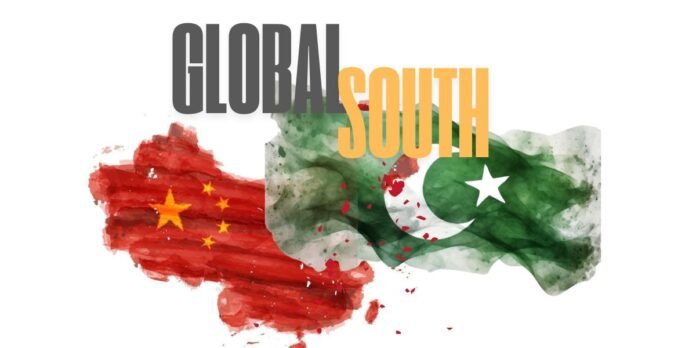In the beautiful Azerbaijani cities of Baku and Karabakh, the ADA University Policy Forum hosted discussions on the challenges facing the global order. Approximately eighty intellectuals from forty-four countries around the world participated. The concept of the Global South was also a key part of the discussions at the Policy Forum. The term “Global South” refers to countries belonging to the Group of 77 in the United Nations, which has now become an alliance of nearly 134 countries.
The term Global South emerged as an alternative to the old and outdated concept of the North-South divide during the Cold War, referring to countries or developing regions of Asia, Africa, and Latin America. A common reference for most countries included in the Global South is that these countries or regions have undergone the experience of colonialism and imperialism and have been subjected to economic, political, and social exploitation. However, as the world continues to develop, the voice of the Global South is also resonating around the world, focusing on peace and development, governance and democratic participation, environmental sustainability, and climate justice. In light of these points, the concept of the Global South appears to be economic rather than geographical, which certainly reflects a collective desire for a just and inclusive global order.
According to the IMF’s 2024 report, the Global South accounts for 42% of global GDP, 44% of global trade, and 65% of Foreign Direct Investment (FDI). From 2014 to 2024, the Global South has demonstrated an average growth of 4%. Cautious estimates from international financial institutions suggest that by 2030, three of the world’s four argest economies will belong to the Global South.
This growing economic and political influence underscores the role of countries within the Global South in shaping the global order. The formation of the Global South faces certain challenges. The biggest challenge for the Global South is the unity amongst its member states. Generally, countries of the Global South agree on various regional and global issues such as climate change, economic development, and global conflicts; however, there are also clear divisions and differences within the Global South. The fundamental reason for this is that the Global South is not a grouping of like-minded countries, but rather a concept comprised of diverse political systems, cultures, and socio-economic structures. Some of these countries also disagree on regional conflicts and regional governance frameworks. Countries belonging to the Global South do not share a uniform political ideology, nor a unified stance on the problems facing the world.

China considers itself part of the developing world and a champion of South-South cooperation, which has led to its emergence as a natural leader of the Global South. Within the Global South, the People’s Republic of China is a country that has not only transformed itself into the world’s second-largest economy but also stands out from other major powers in the Global South due to its development, trade, technology transfer, and non-interventionist approach. China, together with the developing world, can promote the concept of the Global South. The growing antagonism between China and the United States is also contributing to a visible warmth in China’s relations with the Global South. Initiatives like the BRI have opened new avenues for China’s relations with countries in Africa, Asia, and Latin America, and the reality is that the BRI has connected China with the Global South. In June 2024, the President of the People’s Republic of China, Xi Jinping, reiterated China’s support for the Global South and provided a framework for cooperation with Global South countries in the fields of education, agriculture, and trade over the next five years.
As middle powers, Azerbaijan and Pakistan play significant roles within the concept of the Global South. Azerbaijan acts as a bridge between East and West, and is an active player within the Global South. Azerbaijan can foster connections and regional cooperation among Global South countries by investing in transportation infrastructure.
Azerbaijan has become a hub for connectivity and dialogue in the region and is working towards South-South solidarity and social justice and addressing the environmental crisis for developing countries. Pakistan has long been a proponent of Global South unity, peace, and sustainable development. As a founding member of the G77, Pakistan has consistently supported principles such as South-South cooperation, national sovereignty, and equality. One of the most transformative partnerships in recent decades is CPEC, a flagship project of the BRI. CPEC is not just about roads or power plants; it is a symbol of regional integration and sustainable economic development.
CPEC is boosting Pakistan’s industrial productivity and helping to improve regional connectivity. Pakistan is also actively working to combat climate change, a major threat to the Global South. As a country highly vulnerable to climate disasters, Pakistan played a key role at COP27 and advocated for the establishment of a loss and damage fund. Pakistan is also committed to combating Islamophobia on global platforms such as the OIC and the United Nations, in order to address the concerns of Muslim-majority countries in the Global South.
What should be the roadmap for the future of the Global South? The Global South should initiate a multi-dimensional dialogue to promote sustainable development, inclusive governance, and regional peace. The Global South should expand energy diplomacy, including determining an energy distribution formula through technical cooperation agreements. Regional partnerships can be formed for logistics networks and digital trade through the Middle Corridor. The establishment of a South-South digital innovation hub can be promoted, focusing on smart governance, cybersecurity, and youth entrepreneurship. Cultural and educational exchanges can be fostered, and a Global South Fellowship can be launched. CPEC can be advanced as a multilateral South-South framework. Pakistan’s role in COP27 can be advanced by forming regional alliances for climate adaptation diplomacy, disaster preparedness, nature-based solutions, and climate finance transparency. South-South partnerships in the digital economy can be promoted through joint platforms for artificial intelligence and e-govern-ance. A voice can be raised against Islamophobia and for interfaith dialogue.
The concept of the Global South not only highlights the economic and political conditions of those regions of the world that have been affected by the legacy of colonialism and an exploitative global system, but has also become a symbol of the struggle for global justice, sovereignty, and equality. In today’s global landscape, the voice of the Global South is rapidly emerging as a beacon of hope for the creation of a more balanced, mutually respectful, and collaborative world. It is essential that we understand this concept not merely as a term, but as an intellectual and practical movement that illuminates new possibilities for development, self-reliance, and international cooperation.
The establishment of a South-South digital innovation hub can be promoted, focusing on smart governance, cybersecurity, and youth entrepreneurship.
A voice can be raised against Islamophobia and for interfaith dialogue.
Global Southan intellectual and practical movement that illuminates new possibilities for development, self-reliance, and international cooperation.






